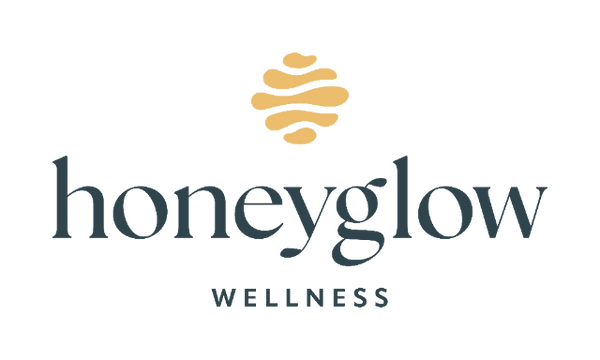
How Inflammation Impacts Your Mood—And What You Can Do About It
Share
Have you ever noticed how your mood shifts when your body feels “off”? More people than ever are experiencing anxiety, depression, brain fog, and fatigue—and while stress and lifestyle play a role, there’s a surprising factor behind many of these struggles: inflammation.
Recent research shows that chronic inflammation doesn’t just affect the body; it also alters the way the brain functions, leading to mood swings, low energy, and emotional imbalance. The good news? By understanding this connection, you can take back control of your mental health naturally.
At HoneyGlow Wellness in Scottsdale, we believe in healing from the inside out. Our integrative approach combines science, nutrition, and recovery practices so you can feel calmer, clearer, and more resilient.
Understanding Inflammation and Its Mental Health Link
What Is Inflammation?
Inflammation is the body’s natural defense mechanism. When you cut your finger or catch a cold, your immune system kicks in with a short-term inflammatory response. This is called acute inflammation—and it’s actually helpful.
But when the immune system stays activated for too long, it creates chronic inflammation, which damages healthy cells and tissues. Over time, this “silent fire” contributes to mood issues, fatigue, and even serious conditions like heart disease or autoimmune disorders.
How Chronic Inflammation Affects the Brain
- Neurotransmitter Disruption: Chronic inflammation interferes with serotonin and dopamine—the brain’s “feel-good” chemicals—leading to depression, irritability, and lack of motivation.
- Structural Changes: Studies show inflammation can shrink areas of the brain linked to memory and emotional regulation.
- Hormonal Imbalances: Chronic stress triggers cortisol spikes, fueling anxiety and mood swings.
- Oxidative Stress: Inflammation creates excess free radicals, which damage brain cells and speed up cognitive decline.
The Mood Impact: What You Might Experience
When inflammation disrupts brain chemistry, the results are easy to feel but harder to pinpoint. Common symptoms include:
- Anxiety and restlessness
- Low mood or depression
- Irritability and mood swings
- Brain fog and trouble focusing
- Physical fatigue and low motivation
This creates a vicious cycle: stress leads to inflammation, which worsens your mood, causing more stress. Breaking this cycle requires a mix of lifestyle changes and targeted wellness support.
Proven Strategies to Break the Cycle
A. Anti-Inflammatory Lifestyle Changes
1. Diet Adjustments
What you eat has a direct impact on inflammation.
-
Add more of these foods:
- Berries, leafy greens, and cruciferous vegetables
- Omega-3-rich foods like salmon, walnuts, and chia seeds
- Fiber-rich foods such as oats, beans, and whole grains
-
Reduce these triggers:
- Refined sugar and processed snacks
- Excess alcohol
- Processed meats and fried foods
2. Exercise and Movement
Movement lowers inflammation by improving circulation, balancing hormones, and boosting serotonin. Aim for at least 30 minutes of activity most days, whether it’s walking, strength training, or yoga.
3. Prioritize Sleep
Sleep deprivation is a hidden driver of inflammation. Poor sleep raises cortisol levels and weakens the immune system. To optimize rest:
- Keep a consistent bedtime
- Limit screen time before bed
- Create a calming nighttime routine
B. Mind-Body Practices
The mind and body are deeply connected when it comes to inflammation. Stress reduction techniques can calm the nervous system and lower inflammatory responses. Try:
- Deep breathing or meditation
- Gentle yoga or stretching
- Mindfulness practices that keep you present
- Vagus nerve stimulation (see our blog on recovery and relaxation practices)
Science-Backed Wellness Solutions at HoneyGlow
At HoneyGlow Wellness, we provide advanced services designed to target inflammation and restore balance:
- IV Therapy: Delivers anti-inflammatory nutrients directly into your bloodstream for faster absorption.
- Booster Shots: Quick, targeted support like B12 to boost energy and mood.
- Peptide & Hormone Therapies: Helps restore balance, repair tissues, and support long-term healing.
- Thrive Day: A complete rejuvenation experience that combines detox, relaxation, and nutrient support.
- Detox Day: Designed to reduce systemic inflammation, improve mental clarity, and restore calm.
Inflammation and Mood: Common Questions Answered
How does inflammation affect mental health?
Inflammation interferes with brain chemistry, increasing the risk of anxiety, depression, and brain fog.
What is the best way to reduce inflammation naturally?
Focus on diet, daily movement, quality sleep, and stress management. Complement these with targeted therapies when needed.
Can diet alone fix mood-related inflammation?
Nutrition is foundational, but for many people, additional support—such as IV therapy or hormone balancing—is needed for lasting change.
Which HoneyGlow service is right for mood support?
It depends on your unique needs. A consultation can help you choose between IV therapy, boosters, or a complete program like Thrive Day.
When to Seek Professional Help
It’s normal to feel stressed or moody from time to time, but if low energy, brain fog, or irritability seem to linger, it could be a sign that inflammation is playing a deeper role in your health. Many people try to push through these feelings, assuming they’re just part of getting older or a busy lifestyle, but ignoring the signs can allow chronic inflammation to quietly worsen. If you’ve noticed persistent fatigue despite getting rest, difficulty concentrating at work, or mood swings that interfere with daily life, it may be time to reach out for support. Professional guidance is especially important if you’re managing an existing inflammatory condition—such as autoimmune disease, arthritis, or metabolic issues—as these can directly influence your mood and energy levels. At HoneyGlow Wellness, we go beyond surface-level symptoms by offering comprehensive lab assessments that measure hidden inflammatory markers, hormone balance, nutrient levels, and more. These insights allow us to create a personalized wellness plan that doesn’t just mask symptoms but addresses the root cause of imbalance. With tailored therapies like IV nutrient infusions, hormone optimization, or targeted recovery services, you can begin to calm inflammation, restore clarity, and support lasting mood balance.
Take the First Step Toward a Calmer, Healthier You
Your mood doesn’t have to be at the mercy of hidden inflammation. By combining small but powerful lifestyle shifts with science-backed therapies, you can create lasting improvements in how you feel both physically and emotionally. Simple changes like adding more anti-inflammatory foods to your meals, moving your body every day, and creating a sleep routine that allows for deep rest can go a long way in breaking the stress-inflammation cycle. But if you’ve been struggling with persistent fatigue, brain fog, or low mood, professional support may be the missing piece. At HoneyGlow Wellness, our team provides holistic services designed to help you heal from the inside out, including IV therapy for nutrient replenishment, booster shots for energy and clarity, and hormone-balancing therapies that restore your body’s natural rhythms. We also offer signature experiences like Thrive Day and Detox Day, which combine multiple healing practices for whole-body rejuvenation. Every program can be tailored to meet your unique needs, guided by lab testing that helps uncover hidden inflammatory markers. If you’re ready to feel calmer, clearer, and more energized, we invite you to explore our wellness services or book a consultation at HoneyGlow Wellness in Scottsdale today. Your journey toward a healthier mood and a brighter outlook starts with one choice—taking the first step.


